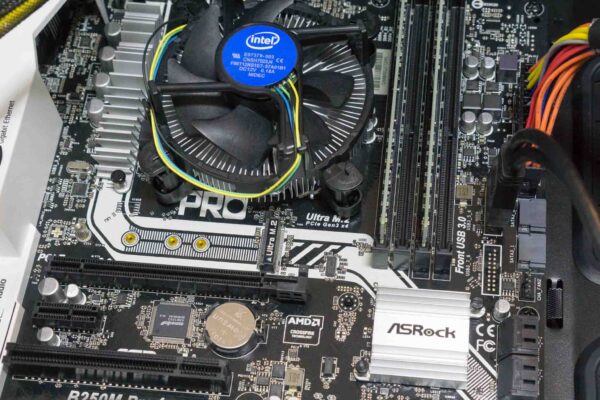It’s no surprise now that I’ve been looking at NAS software appliances, and perhaps leaning toward NAS4Free because of its virtualisation features. NAS4Free is based on FreeBSD, and a perennial concern I always have with FreeBSD is if it will run on modern hardware that I have. It tends not to be so up-to-date with hardware support like Linux.
It’s the same problem I’ll face if I chose FreeNAS. Both are based on FreeBSD. That’s not to say FreeBSD is bad. There are some cool things about it, like the stability of their ZFS support. I run pfSense too, and that’s also based on FreeBSD. It’s just that FreeBSD tends not to be so quick to catch up on supporting the latest hardware.
So that begs the question, will NAS4Free, which is currently built on FreeBSD 11, run on hardware like Intel’s 7th Generation Core CPUs and their matching generation of chipsets?
I’ve done a quick test with this hardware list:
- Intel Pentium G4560 (yes, it is Kaby Lake)
- ASRock B250M Pro4
- Kingston ValueRAM DDR4 2400
The test is successful. NAS4Free works nicely.
This is a particularly nice setup using the Pentium G4560. It belongs to the Kaby Lake generation of processors, and is oddly enough extremely affordably priced. Traditionally, Pentium processors lack hyper-threading support. The G4560, however, has somehow been blessed with hyper-threading, so with two physical cores, this processor has 4 VCPUs, similar to the far more expensive Core i3-7100. The Pentium G4560 has pretty good reviews.
The Intel B250 chipset is also of Kaby Lake generation. It’s an entry-level consumer chipset featuring 6x SATA3 ports and 6x USB 3.0 ports. There are other nice features, but these are probably the most important ones of concern for those who want to install a NAS software appliance.
I’ll post more about these setup in due course, so watch this blog!

